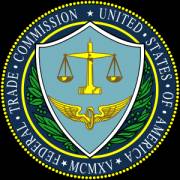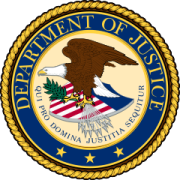 It’s hardly news that the Obama Administration is no friend of so-called “Patent Assertion Entities,” or PAEs. Not only members of the administration, but the big man himself have spoken publicly against those companies that make a business model out of buying and asserting patents, as compared to universities and others that actually develop, and then license, new technology (sometimes referred to as “Non-Practicing Entities,” or NPEs).
It’s hardly news that the Obama Administration is no friend of so-called “Patent Assertion Entities,” or PAEs. Not only members of the administration, but the big man himself have spoken publicly against those companies that make a business model out of buying and asserting patents, as compared to universities and others that actually develop, and then license, new technology (sometimes referred to as “Non-Practicing Entities,” or NPEs).
Most of what little we know about the business strategies, licensing practices and economics of PAEs has been gleaned from disclosures made in the course of litigation. Now the Federal Trade Commission has decided to gather some first-hand information on exactly how PAEs operate. And, because it is a regulatory agency, it can do so by asking the PAEs themselves to respond, and under oath, to boot.
 Yesterday I distributed the latest issue of Standards Today, my free eJournal of "News, Ideas and Analysis." While the central focus of Standards Today is (wait for it...) standards, I also cover a variety of other issues, just as I do at this blog. As usual, some of the articles in this latest issue appeared in earlier versions here at the Standards Blog, while others appear for the first time in this issue.
Yesterday I distributed the latest issue of Standards Today, my free eJournal of "News, Ideas and Analysis." While the central focus of Standards Today is (wait for it...) standards, I also cover a variety of other issues, just as I do at this blog. As usual, some of the articles in this latest issue appeared in earlier versions here at the Standards Blog, while others appear for the first time in this issue.
The theme of the latest issue is the value of open standards, a much debated topic with little actual data to work with. I'm pleased to include in this issue a guest article by two Dutch professors, who take to task a government-commissioned report that found little value in preferring open standards over proprietary alternatives. The authors not only found quite the opposite, but also propose a methodology for performing further analyses in the same area.
 The Federal Trade Commission today issued the Final Order in its action against Google involving that company’s assertion of certain “standards essential patents” (SEPs). Google gained control of the patents in question through its earlier acquisition of Motorola Mobility and asserted them against various mobile device vendors. Those parties cried foul, claiming that the terms that Google had demanded were inconsistent with the obligations assumed to license the SEPS on “fair, reasonable and non-discriminatory” (FRAND) terms to all implementers of the standards in question.
The Federal Trade Commission today issued the Final Order in its action against Google involving that company’s assertion of certain “standards essential patents” (SEPs). Google gained control of the patents in question through its earlier acquisition of Motorola Mobility and asserted them against various mobile device vendors. Those parties cried foul, claiming that the terms that Google had demanded were inconsistent with the obligations assumed to license the SEPS on “fair, reasonable and non-discriminatory” (FRAND) terms to all implementers of the standards in question.
Google agreed to a settlement with the FTC this past January, following which the FTC released a draft settlement order for public comment. The Final Order just released includes a variety of adjustments and changes resulting from the 25 comments received during the public comment period. The 34 page Final Order can be found here and a seven page letter, sent to each commenter and explaining the changes made, is here.
 Yesterday, the Obama administration announced a new effort to curb baseless patent lawsuits, which it believes are stifling innovation and economic activity. The new initiative would take five actions under the President’s Executive authority, and also makes seven legislative recommendations intended, “to protect innovators from frivolous litigation and ensure the highest-quality patents in our system.”
Yesterday, the Obama administration announced a new effort to curb baseless patent lawsuits, which it believes are stifling innovation and economic activity. The new initiative would take five actions under the President’s Executive authority, and also makes seven legislative recommendations intended, “to protect innovators from frivolous litigation and ensure the highest-quality patents in our system.”
 Perhaps the most important term in any standards organization’s Intellectual Property Policy (IPR) policy is the acronym “RAND,” standing for “reasonable and non-discriminatory” (in Europe, they add an “F” – for “fair” - at the front end, yielding “FRAND,” but the meaning is the same). Virtually every other term in such a policy will appear in one of many variations from policy to policy, and these definitions can be quite lengthy and precise. But the definition of F/RAND is always word for word the same – never is a different term used, nor is any additional elaboration provided to explain exactly what “fair” or “reasonable” are intended to mean.
Perhaps the most important term in any standards organization’s Intellectual Property Policy (IPR) policy is the acronym “RAND,” standing for “reasonable and non-discriminatory” (in Europe, they add an “F” – for “fair” - at the front end, yielding “FRAND,” but the meaning is the same). Virtually every other term in such a policy will appear in one of many variations from policy to policy, and these definitions can be quite lengthy and precise. But the definition of F/RAND is always word for word the same – never is a different term used, nor is any additional elaboration provided to explain exactly what “fair” or “reasonable” are intended to mean.
The result is that when two parties – the owner of a patent claim that an implementer of a standard can’t avoid infringing (an “Essential Claim”) and a party that wants to implement the standard – can’t agree on what the boundaries of these words should be, a third party is needed to settle the dispute.
Have you discovered The Alexandria Project?
 On Tuesday, OASIS made an extremely rare announcement for an information technology consortium: that it has successfully completed the process of becoming accredited by the American National Standards Institute (ANSI). As a result, it is now able to submit its standards to ANSI for recognition as American National Standards (ANS). And also to directly submit its standards for adoption by ISO and IEC. This is a milestone that’s worthy of note, despite the fact that over 200 standards setting organizations (SSOs) have achieved a similar status in the past.
On Tuesday, OASIS made an extremely rare announcement for an information technology consortium: that it has successfully completed the process of becoming accredited by the American National Standards Institute (ANSI). As a result, it is now able to submit its standards to ANSI for recognition as American National Standards (ANS). And also to directly submit its standards for adoption by ISO and IEC. This is a milestone that’s worthy of note, despite the fact that over 200 standards setting organizations (SSOs) have achieved a similar status in the past.
 Yesterday the Antitrust Division of the U.S. Department of Justice (DoJ) and the U.S. Patent Trademark Office (USPTO) united in issuing a rare joint policy statement on Remedies for Standards-Essential Patents Subject to Voluntary F/RAND Commitments. As the title suggests, the policy focuses on those patent claims that would be necessarily infringed by the implementation of a standard (so-called standards essential patents, or “SEPs”), where the owner of the claims has pledged to make the claims available on “fair, reasonable and non-discriminatory” (or “F/RAND”) terms. More specifically, the policy statement addresses the question of whether, and if so when, the owner of SEPs should be entitled to ask the International Trade Commission (ITC) for an injunction to bar the importation of products implementing the standard in question.
Yesterday the Antitrust Division of the U.S. Department of Justice (DoJ) and the U.S. Patent Trademark Office (USPTO) united in issuing a rare joint policy statement on Remedies for Standards-Essential Patents Subject to Voluntary F/RAND Commitments. As the title suggests, the policy focuses on those patent claims that would be necessarily infringed by the implementation of a standard (so-called standards essential patents, or “SEPs”), where the owner of the claims has pledged to make the claims available on “fair, reasonable and non-discriminatory” (or “F/RAND”) terms. More specifically, the policy statement addresses the question of whether, and if so when, the owner of SEPs should be entitled to ask the International Trade Commission (ITC) for an injunction to bar the importation of products implementing the standard in question.
Check out my new Author's Blog: Tales of Adversego
 The big news in the tech world yesterday was the announcement by the U.S. Federal Trade Commission (FTC) that it was terminating its review of Google’s business practices without requiring significant changes to the search giant’s advertising practices. While that facet of the story has been extensively covered in many other venues, another important aspect of the FTC’s settlement has received little attention – Google’s agreement to enter into binding arbitration with implementers objecting to its offered license terms. Only if the would-be license refused to enter arbitration, or refuses to honor the arbitrators decision, can can Google seek injunctive relief in the future in connection with any “standards essential patents” (SEPs) that it owns.
The big news in the tech world yesterday was the announcement by the U.S. Federal Trade Commission (FTC) that it was terminating its review of Google’s business practices without requiring significant changes to the search giant’s advertising practices. While that facet of the story has been extensively covered in many other venues, another important aspect of the FTC’s settlement has received little attention – Google’s agreement to enter into binding arbitration with implementers objecting to its offered license terms. Only if the would-be license refused to enter arbitration, or refuses to honor the arbitrators decision, can can Google seek injunctive relief in the future in connection with any “standards essential patents” (SEPs) that it owns.
Have you discovered The Alexandria Project?
 Governments certainly have more than enough to concern themselves with these days – financial crises, natural disasters and terrorism, to name just a few. Given that’s the case, it’s surprising that so many are finding the time to worry about what kind of standards the products and services they purchase comply with. But they are.
Governments certainly have more than enough to concern themselves with these days – financial crises, natural disasters and terrorism, to name just a few. Given that’s the case, it’s surprising that so many are finding the time to worry about what kind of standards the products and services they purchase comply with. But they are.
That’s the case in the EU, where the final terms of version 2.0 of the European Interoperability Framework (EIF) were the subject of heated debate, resulting in a watered down definition of what should be regarded as acceptable standards for use in enabling communications between EU member nations. It’s also the case within those EU member states that are considering adopting definitions similar to the original formulation that appeared in the original, 2004 version of the EIF.
"Alice laughed: "There's no use trying," she said; "one can't believe impossible things."
"I daresay you haven't had much practice," said the Queen. "When I was younger, I always did it for half an hour a day. Why, sometimes I've believed as many as six impossible things before breakfast."
Alice in Wonderland.
Have you discovered The Alexandria Project?
 Now that the jury has given Apple almost everything it asked for in its infringement suit against Samsung, what should we expect to happen next? I think it's a given that Samsung will appeal. Given the damages awarded and the obvious determination of Apple to defend its patents, Samsung has little choice but to press forward wherever it can in court.
Now that the jury has given Apple almost everything it asked for in its infringement suit against Samsung, what should we expect to happen next? I think it's a given that Samsung will appeal. Given the damages awarded and the obvious determination of Apple to defend its patents, Samsung has little choice but to press forward wherever it can in court.
This doesn't necessarily mean that it's ultimate goal is to prevail through litigation, because it will constantly be running into existing and new Apple patents for so long as they remain competitors in the marketplace. Ultimately, what should make the best sense for Samsung is to negotiate the most comprehensive patent cross license with Apple that it can, and maintaining a full court press throughout the world's legal venues is the best way to ensure that it can get the best terms possible in such a license.
 It’s hardly news that the Obama Administration is no friend of so-called “Patent Assertion Entities,” or PAEs. Not only members of the administration, but the big man himself have spoken publicly against those companies that make a business model out of buying and asserting patents, as compared to universities and others that actually develop, and then license, new technology (sometimes referred to as “Non-Practicing Entities,” or NPEs).
It’s hardly news that the Obama Administration is no friend of so-called “Patent Assertion Entities,” or PAEs. Not only members of the administration, but the big man himself have spoken publicly against those companies that make a business model out of buying and asserting patents, as compared to universities and others that actually develop, and then license, new technology (sometimes referred to as “Non-Practicing Entities,” or NPEs). Yesterday I distributed the latest issue of
Yesterday I distributed the latest issue of  Yesterday, the Obama administration announced a new effort to curb baseless patent lawsuits, which it believes are stifling innovation and economic activity. The new initiative would take five actions under the President’s Executive authority, and also makes seven legislative recommendations intended, “to protect innovators from frivolous litigation and ensure the highest-quality patents in our system.”
Yesterday, the Obama administration announced a new effort to curb baseless patent lawsuits, which it believes are stifling innovation and economic activity. The new initiative would take five actions under the President’s Executive authority, and also makes seven legislative recommendations intended, “to protect innovators from frivolous litigation and ensure the highest-quality patents in our system.”  Perhaps the most important term in any standards organization’s Intellectual Property Policy (IPR) policy is the acronym “RAND,” standing for “reasonable and non-discriminatory” (in Europe, they add an “F” – for “fair” - at the front end, yielding “FRAND,” but the meaning is the same). Virtually every other term in such a policy will appear in one of many variations from policy to policy, and these definitions can be quite lengthy and precise. But the definition of F/RAND is always word for word the same – never is a different term used, nor is any additional elaboration provided to explain exactly what “fair” or “reasonable” are intended to mean.
Perhaps the most important term in any standards organization’s Intellectual Property Policy (IPR) policy is the acronym “RAND,” standing for “reasonable and non-discriminatory” (in Europe, they add an “F” – for “fair” - at the front end, yielding “FRAND,” but the meaning is the same). Virtually every other term in such a policy will appear in one of many variations from policy to policy, and these definitions can be quite lengthy and precise. But the definition of F/RAND is always word for word the same – never is a different term used, nor is any additional elaboration provided to explain exactly what “fair” or “reasonable” are intended to mean. Yesterday the Antitrust Division of the U.S. Department of Justice (DoJ) and the U.S. Patent Trademark Office (USPTO) united in issuing a rare joint policy statement on
Yesterday the Antitrust Division of the U.S. Department of Justice (DoJ) and the U.S. Patent Trademark Office (USPTO) united in issuing a rare joint policy statement on  The big news in the tech world yesterday was the announcement by the U.S. Federal Trade Commission (FTC) that it was terminating its review of Google’s business practices without requiring significant changes to the search giant’s advertising practices. While that facet of the story has been extensively covered in many other venues, another important aspect of the FTC’s settlement has received little attention – Google’s agreement to enter into binding arbitration with implementers objecting to its offered license terms. Only if the would-be license refused to enter arbitration, or refuses to honor the arbitrators decision, can can Google seek injunctive relief in the future in connection with any “standards essential patents” (SEPs) that it owns.
The big news in the tech world yesterday was the announcement by the U.S. Federal Trade Commission (FTC) that it was terminating its review of Google’s business practices without requiring significant changes to the search giant’s advertising practices. While that facet of the story has been extensively covered in many other venues, another important aspect of the FTC’s settlement has received little attention – Google’s agreement to enter into binding arbitration with implementers objecting to its offered license terms. Only if the would-be license refused to enter arbitration, or refuses to honor the arbitrators decision, can can Google seek injunctive relief in the future in connection with any “standards essential patents” (SEPs) that it owns. Governments certainly have more than enough to concern themselves with these days – financial crises, natural disasters and terrorism, to name just a few. Given that’s the case, it’s surprising that so many are finding the time to worry about what kind of standards the products and services they purchase comply with. But they are.
Governments certainly have more than enough to concern themselves with these days – financial crises, natural disasters and terrorism, to name just a few. Given that’s the case, it’s surprising that so many are finding the time to worry about what kind of standards the products and services they purchase comply with. But they are. Now that the jury has given Apple almost everything it asked for in its infringement suit against Samsung, what should we expect to happen next? I think it's a given that Samsung will appeal. Given the damages awarded and the obvious determination of Apple to defend its patents, Samsung has little choice but to press forward wherever it can in court.
Now that the jury has given Apple almost everything it asked for in its infringement suit against Samsung, what should we expect to happen next? I think it's a given that Samsung will appeal. Given the damages awarded and the obvious determination of Apple to defend its patents, Samsung has little choice but to press forward wherever it can in court.